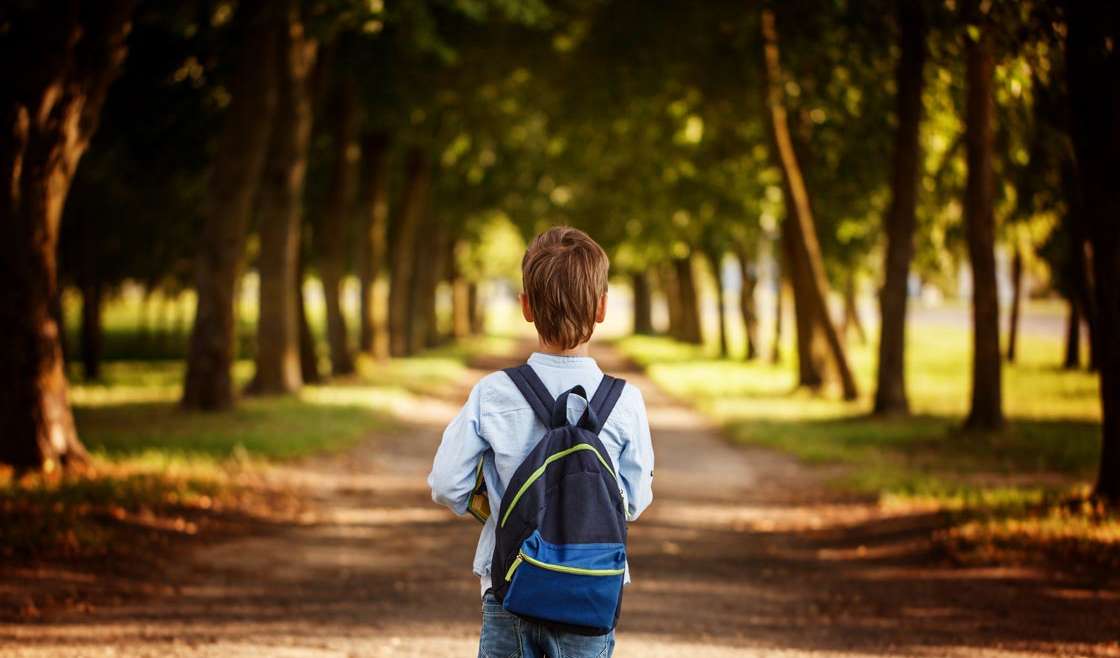This week, millions of students across Australia return to or start school. Here are 5 top tips to help your child navigate their way into a healthy and happy school year.
- Walk to school. It’s not possible for every family all the time, but if you can, walk with your children to school. A recent survey by Live Lighter found that almost 2 in 3 students are driven by their parents to school on most days. “Walking the kids to school instead of dropping them off in the car is a great way for families to establish healthy habits together,” says Roni Beauchamp, spokesperson for the Heart Foundation in Victoria.“There are so many benefits of daily exercise for children – from improved concentration and better self-confidence to stronger muscles and bones. Research also suggests that physical activity helps to reduce the risk of children developing health problems in later life.”
- Enforce bedtimes. Getting enough sleep is vital for children’s growth and development – so ensuring your child goes to bed early enough will help them concentrate at school and learn. Children aged 3 to 5 need between 10 and 13 hours’ sleep per night, while children aged 6 to 13 need between 9 and 11 hours’ sleep per night.Set an appropriate bedtime and stick to it – even on weekends – and follow the same pre-bedtime routine every night. Discover more ways to help your child sleep well here.
- Master the art of the lunch box. A study by the University of Adelaide, which tracked more than 430 schoolchildren aged 9 to 10, found that almost half of kids’ daily energy intake was from ‘discretionary’ foods high in fat, salt and sugar. Most children didn’t eat enough veggies, while most girls didn’t consume enough dairy.Ensure your child’s lunch box is loaded with nutritious foods such as sandwiches, cheese, wholegrain crackers, yoghurt, fresh fruit, vegetable sticks and homemade muffins, advises the Dietitians Association of Australia.
- Ease starting-school nerves. Going back to school can cause some anxiety for any child but starting the first year of school, kindergarten (known as ‘reception’, ‘prep’ and ‘pre-primary’ in some states and territories) can be a challenging and emotional time.Try to drop your child off before the morning bell rings and collect them on time – if you’re late it could make them feel very anxious. If you can, use after-school time to chat and snack on healthy bites, just the two of you. For more tips on managing the first few weeks of school, visit the Raising Children Network.
- Handle head lice. These tiny, wingless insects, which are the size of a sesame seed, live in the hair of humans and animals and while they’re not dangerous and don’t spread disease, lice bites can cause itching and irritation. Because lice move between children’s heads during school playtime, and their eggs (nits) hatch after several days, they can be hard to prevent.Tying back long hair and reminding your child to avoid head-to-head contact with other kids can help. If lice have ‘moved in’ – you can see the lice and nits if you look very closely at your child’s hair – follow the steps here to treat it.Different schools have different policies when it comes to head lice, so notify your school to find out if your child needs to be excluded until after treatment.
The school term can be an exciting and rewarding time. If you have any concerns about your child’s wellbeing, or their feelings towards school, you can visit one of these sites for advice:
- Kids Helpline
- Raising Children Network
- Parentline – see the website for the helpline number in your state or territory.
Original from https://www.healthdirect.gov.au/blog/back-to-school-health-tips



